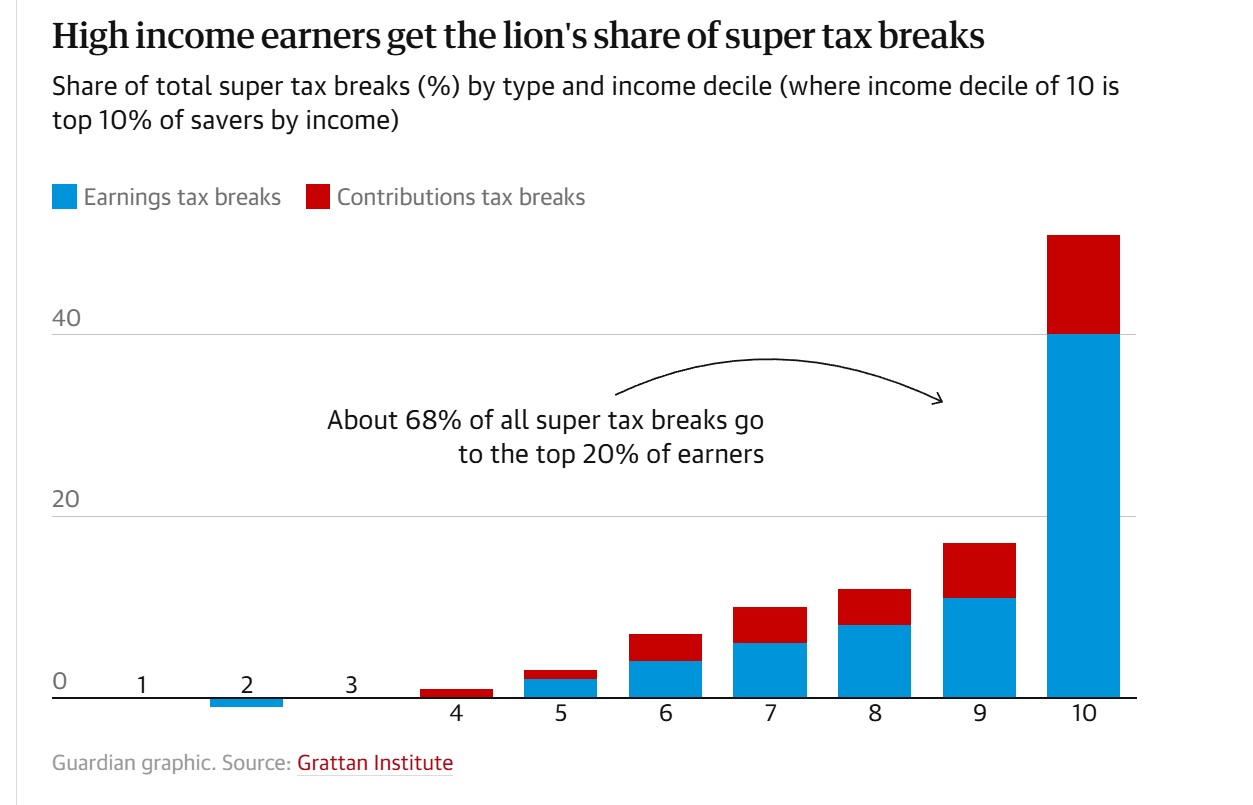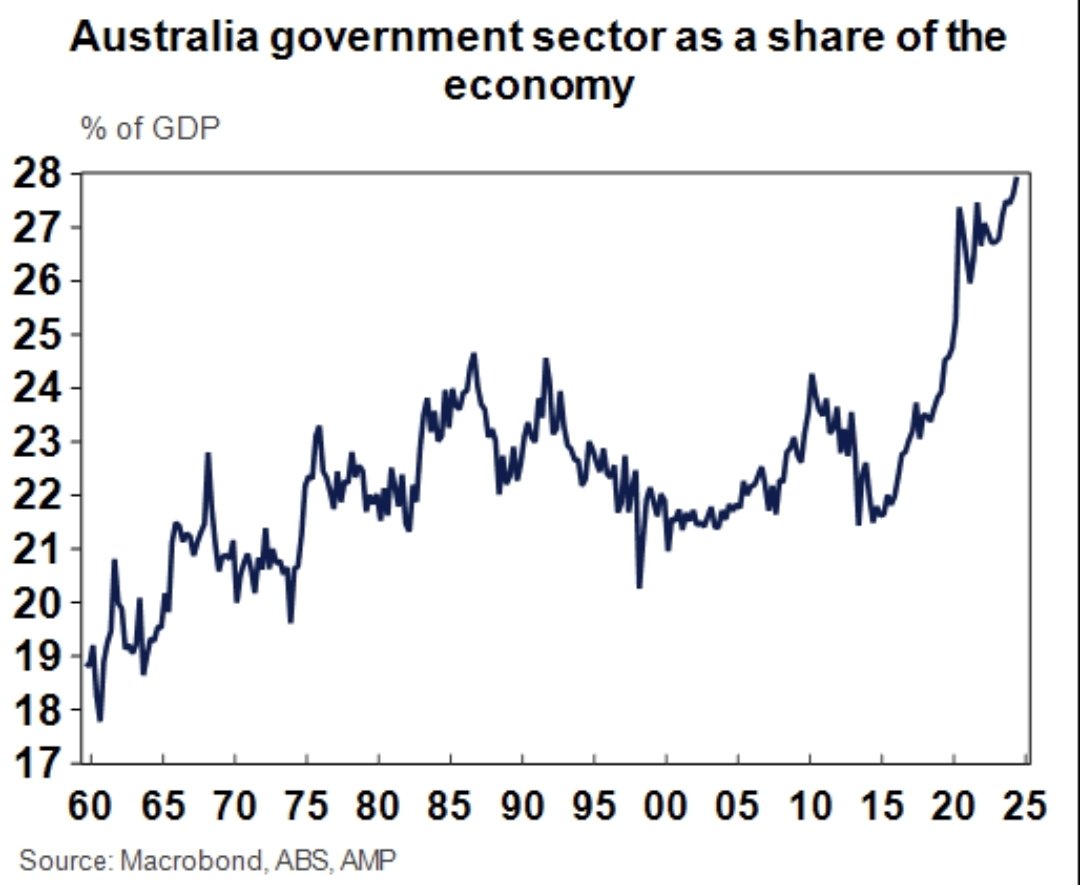MSM dooms Australia to more of the same
A mainstay of the Ninefax Pro Population Ponzi lobby, Shane Wright regularly depicts a world of skills shortages, investment crashes due to absent demand, and crypto Marxists proposing radical reform. We have had Shane on in the past, examining his bogus claim that international student numbers have no influence on rents.
This week, Shane teed off with trio of pieces providing a fascinating insight into what passes for economic analysis in our mainstream media. Shane likes house prices rising and migrant numbers firm, and frets about policy reform, which may diminish the smorgasbord on offer for the very affluent. He sets a bar by which Australia’s mainstream media should be considered, if not judged.
His trio has been:
And the fin de siècle clicks over today to the rather obvious:
Shane’s first piece is a fascinating insight. He gets plenty right.
Preferential voting was born out of WW1, and as MB has been pointing out, the recent Federal election did see the ALP cream the Tories when it came to seats, but they were still doing it with only just over a third of the popular vote, and one in five seats were not your standard ALP v LNP playoff. He totally nails the phenomenon with this observation.
‘That should be one of the key takeaways for the major parties from this election. It’s a sign that our society wants more on offer than just a choice between the traditional left and right. It also shows the dissatisfaction among a growing number of voters with the major parties; more than a third backed someone else. Voters are exercising their right to choose, something we should cherish in a democracy.‘
He should have wound up there. Next minute Shane is down rabbit holes looking at claims that someone wants to go back to first past the post, or Australians don’t understand the preferential voting they’ve had for a century. Then he leaves, asserting that critics of the system desire only their representation and nothing more.
Shane would only need to read Macrobusiness to get a sense that there are critics of the system because the system keeps delivering what the punterariat doesn’t actually want.
They want.
- Cheaper housing – both purchased and rented
- Cheaper energy
- Fewer migrants
- Income increases
Most of all, they want an increased sense that the system they are part of is doing something for them. Not doing something for someone else, and telling the punterariat it really is for them.
Or, to be a little bit more pointed about it, not harvesting them and giving someone else a bigger slice of that harvest. Not coming out with sentiments espousing a sense of ‘we feel your pain’ when ostentatiously spending big on not feeling that pain. Not slipping into lecture mode about ESG social issues when the beneficiaries of that ESG stance aren’t the people paying the price or the ESG issues are peripheral to the lived experience. Not asserting a phenomenon is a public good when much of the public may experience that phenomenon as a public not so good.
They want a sense that we are all on the same team, that we are all playing to some form of national game plan, that a successful game plan will involve a payoff for everyone, and, very importantly for the many, a far better sense that we are delivering a better future for all Australians and not loading them with bills for a lot of seemingly gilded present beneficiaries.
It isnt that hard if you look at the lived experience of the bulk of Australia.
Shane’s next piece steps straight onto one of those landmines where far too many Australians are asking if national policy is for them or is to harvest them to benefit someone else. That is superannuation.
Forty years ago, Messrs. Hawke, Keating, Kelty, and a load of big business types knew that Australia had become an industrial museum and needed to do something about productivity. Super, as we know it, was born out of the tradeoffs to create a competitive Australia.
Getting ordinary Australians to set aside for their retirement years took the sting out of unions pushing for pay raises and held out the prospect of them not being a burden on the public purse in their dotage and theoretically created a body of capital that could be deployed to fund innovation and give the government a lever on economic policy.
There are for sure arguments about what has happened and how, as well as how much sense the original idea made. But superannuation no longer makes the sense it did in the 1980s. Anyone under the age of about 60 could well make a case that the money they are forced to set aside would be better directed to living. Plenty of those would also note that the money they have set aside is more than swallowed up by the increased mortgages or rents they are shelling out to keep a roof over their heads.
Then there is the actual economy that super is deployed in. For the most part, the Australia about 95% of us are employed in is far more uncompetitive than the productivity-seeking counterpart of the 1980s was.
Back then we had real exporting and import-competing sectors of the economy using the skills of actual Australians. In 2025, the only significant deployment of skills involves extracting resources from the ground and loading them onto ships bound for Asia.
The rest of us exist in a bubble comprising the world’s most expensive people, land, energy, and internet, such that intelligence with any business acumen would be demanding, ‘Get me out of here’ if it was seeking economic substance.
On super, Shane is warning that the government’s proposal to raise taxes on super balances worth more than $3 million has risks. The gulf between ordinary Australians in the suburbs wanting substantial economic change and a smaller number of vastly more affluent Australians concerned about paying tax is laid bare by Shane’s reporting.
Australia has a brand new ALP government carrying particular expectations of socio-economic reform, and on its first cab from the rank, Shane is in the mainstream media being a nervous Nelly. About super balances of more than 3 million.
For sure there is an issue as to whether the level at which higher taxation kicks in should be indexed. But ordinary Australians reading Shane’s piece could largely be thinking, why not go with the Greens’ proposal of a $2 million threshold and index from there?
The piece itself, which should be about a major economic question for Australia, is a roll on the well-manicured lawns of about 80 thousand uber-affluent, for whom a scheme conceived as a means for ordinary Australians to do the right thing for their country’s economic future has become a discussion point about best tax avoidance and generational bequest vehicles.
He reaches the low point of a serious issue with no comment on the well-noted rorting enabled by SMSFs and a laughable concern for venture capital volumes, which almost appears sponsored by the Australian Trust Association.
‘Data released by the Australian Tax Office last year revealed there are 42 self-managed super funds with at least $100 million in assets. The tax breaks alone on those 42 funds are about $142 million a year.’
Here is a question. Are those 42 funds contributing to Australia or taking from it? Here is another question. Should contributors to the rest of Australia’s estimated 24 million super accounts be putting in if the uber set isnt? That isn’t where Shane is. Shane is asking if they will move to a trust if the government taxes uber super accounts more. Is Shane asking questions ordinary Australians would like answers to?
In terms of this consideration of Shane’s output this week, let us consider super as a fine example of the type of concerns mainstream Australians have about their politicians and elites, with the novel twist that in this instance the politicians look to be doing something in the interests of most Australians, and Shane is fretting about the implications for 80 thousand of Australia’s richest.

But that brings us to his reportage this weekend, regarding housing and the likely outlook.
All in all, it is a pretty ho-hum piece telling us what everybody already knows. Interest rate cuts by the RBA are the likely starter’s gun for another house price surge.
On the upside, he doesn’t come across as though he is barracking for the house price rises – although Ninefax analysis is probably telling them that cheering on rises is probably waving goodbye to an entire younger demographic on the subject of house prices alone.
On the downside, he probably doesn’t need to if HSBC’s Bloxo is the sole data reference point.
As would be natural to Shane, he stays well away from any articulation of the idea that the only way to address the demand-supply balance sufficient to enable Australia to address its housing shortage would be to ease off on the immigrant intake.
‘HSBC chief economist for Australia and New Zealand, Paul Bloxham, said three key factors were likely to underpin higher house prices: predicted rate cuts, federal policies promised at the recent election and state and council planning laws.
He noted the Reserve Bank’s rate cut, with the chance of more rate reductions in coming months, would reduce prospective mortgage repayments while there was an ongoing shortage of supply relative to demand.
Bloxham said some federal government policies, particularly its plan to effectively reduce to 5% the deposit needed by first-time buyers, would put upward pressure on prices.
“Many of these policies, including first home buyer grants, which have gradually increased over a run of years, have primarily increased housing demand and housing prices, increasing the affordability challenge,” he said.
“A greater focus on improving housing supply is needed.” ‘
The vast bulk of Australia’s migrants driving demand for new housing construction in a nation with the second-largest housing construction sector in the OECD will arrive to take relatively lowly paid positions not requiring that much skill, almost certainly deriving their economic substance from government outlays.

One could have thought that a senior economics correspondent for a major Australian news media organisation might have found something to question there.
Alas, opportunity missed.
And that opportunity missed is precisely why more Australians are asking about their politicians and their decisions, asking if their politicians make decisions to harvest them to benefit someone else, and asking whether one of those decisions is to turbocharge population growth with largely unnecessary immigration.